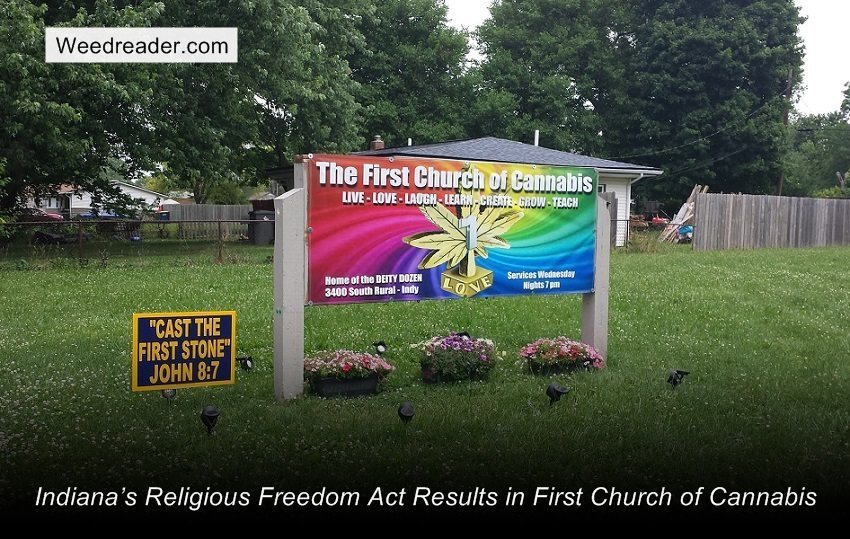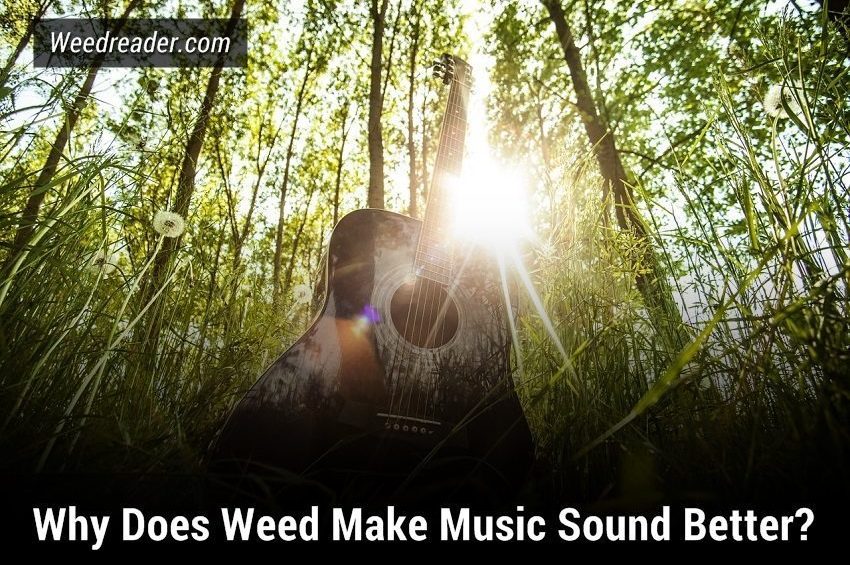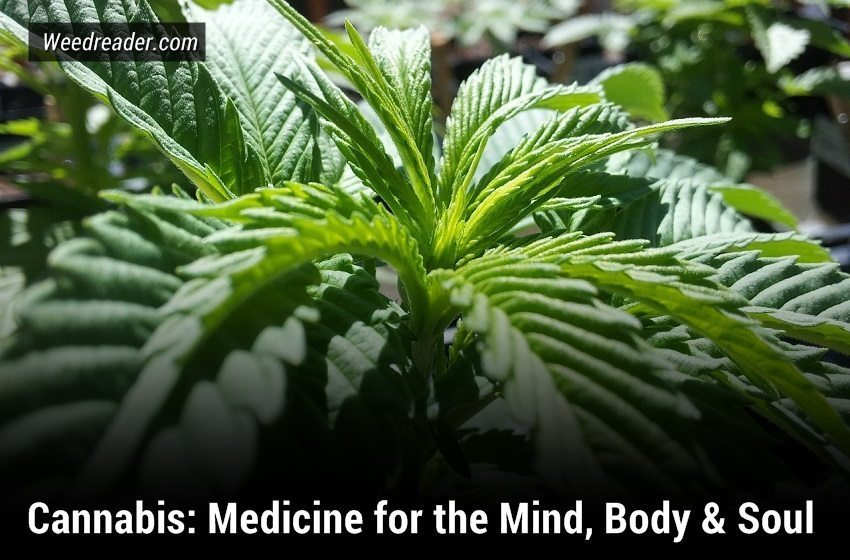Indiana signed a new bill into law last week, the Religious Freedom Restoration Act (RFRA). This controversial law was intended to protect business owners who object to serving the LGBT community on religious grounds. But it has already begun to have some unforeseen consequences…
The same day the bill was signed into law, Indianapolis businessman Bill Levin filed paperwork to start a new church called The First Church of Cannabis, Inc. The application was approved the next day.
In just six days, The First Church of Cannabis has already reached 11,000 likes on Facebook, where Bill greets his flock every morning with a message of love and encouragement, and announces the times of the communal “prayer puffs.” They have also raised more than $3,000 toward construction of their first temple – which they plan to build out of hempcrete. Members of the church are known as “cannataerians,” and will be asked for a monthly donation of $4.20.
The church doctrine lists marijuana as it’s official sacrament, and Levin (who humorously refers to himself as the “Grand Poohba and Minister of Love”) told the Washington Post that the church plans to grow hemp, although it will not be buying or selling marijuana. He also said that his new religion does not have any traditional notions of sin or guilt, and will not use any conventional holy books, but instead will teach the contents of Jack Herer’s cannabis classic, “The Emperor Wears No Clothes.”
Besides advocating for cannabis, the church also plans to offer addiction counseling, and to teach and demonstrate a proper way of life, showing love and compassion to all. Toward that end the church has established the “Deity Dozen,” a modern 12 commandments for living a good life. Number one on the list is (and I quote) “Don’t be an asshole.” The Deity Dozen also encourages members to laugh often and be positive, to grow their own food, “Don’t be a troll on the internet,” and of course, smoke cannabis.
Both medical and recreational cannabis are currently illegal under Indiana state law, but the RFRA defends a person’s right to practice their religion without being prohibited by law. Bill Levin and his cannataerians are putting Indiana’s new law to the test by claiming the right to get high as a religious freedom, a religious right.
According to RFRA, the state cannot impinge upon a citizens religious rights unless it can demonstrate a “compelling interest” in doing so. Furthermore, they must prove that it is the “least burdensome” way of achieving said interest. The pressure is now put upon the state of Indiana to prove a compelling interest in keeping people from smoking pot as a religious practice and aid to worship.
Can they prove that marijuana is a dangerous and addictive gateway drug that corrupts our youth and undermines the social order? Or did they just inadvertently give Indiana pot smokers a religious “Get Out of Jail Free” card?
Stay tuned to find out.
image via: cannaterian.org








